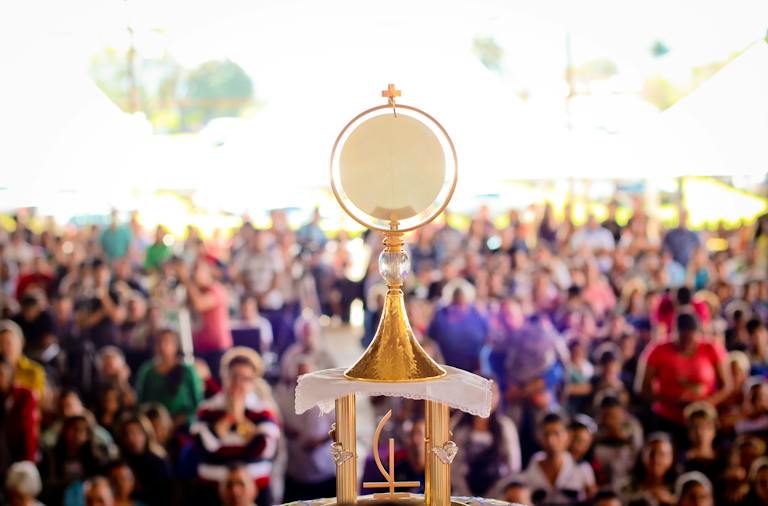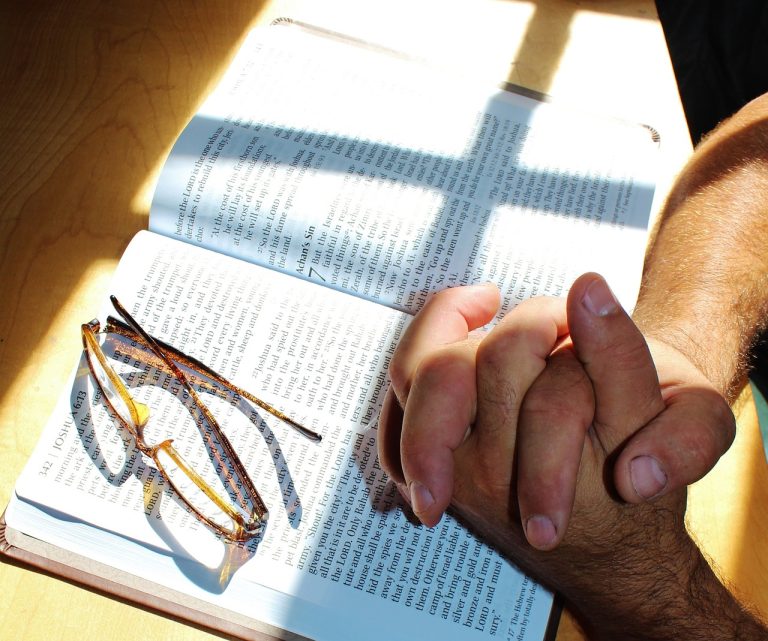How Do You Awaken Thirst for God In People Who Say They Don’t Care?
As I write this, we’re still in the graces of this past Easter Sunday, full of the good news that Jesus Christ is risen from the dead, and his life, death, and resurrection saves, heals, and transforms our lives. Because He is our friend and our LORD, we each have specific divine plans for our lives, and each one is good. Despite our sinfulness and brokenness, He wills good for each of us. That’s not just good news, that is outstanding!
And yet…we have a lot of people who arguably don’t know that. An increasing number (approximately 25%) of people in our country identify as “nones” — that is, none of the above on the religious affiliation survey check box. This is affecting every religion and denomination in the USA. It is a cultural sweep, especially among our younger generations.
More than one person has asked me how to share the good news, or propose a life of faith, to people who have decided they simply don’t care. And this is a different mission question from those that we have had in many ages. It’s one thing to ask people who care about who God is and divine existence to consider the good news of Christ in his Church. It’s another thing to try to convince people they should care at all.
So I’d like to discuss the challenge of “awakening thirst.”
The thirst is there
The thing is, every human being does care about God. We are wired for God because we are body and soul composites — think ensouled bodies or embodied souls. We were created good “out of dust” and our souls are created by God and joined to our tiny bodies at our conception.
Because we are inherently spiritual, we are created in a special way for God. Even living with some of the effects of original sin, that longed-for connection with God is not completely severed. And the soul within us knows this. Because of this creation for God, we long for meaning. We find meaning or make it when we’re in chaos.
We long for intimate connection in healthy and often unhealthy ways. We long to be known as only God can know us. There is a lot of spiritual thirst built into being human.
But so many of us (“nones” or not) have convinced ourselves that we’re not that spiritually thirsty. Everything is fine, or if it isn’t fine, it’s manageable. We have meditation practices and calming apps, and really we’re just too busy to think about this anyway.
Recognizing the importance of spiritual thirst is a good place for us to start. And honestly, it is a lot like physical thirst:
- Physical thirst is most easily recognized when a person is properly hydrated. That is, if you know what being sated feels like, you recognize thirst. If you have not been spiritually active or alive, you may not easily feel what thirst feels like–or you may confuse it for something else.
- Physical thirst sneaks up on you. Being busy, active, etc. can deplete your hydration…and you’re so busy you don’t notice until it is very late (and then you confuse it for something else, see #1 again). Same with spiritual thirst (you stop praying one day, then two, then seven….)
- Physical thirst can be temporarily sated with inadequate hydration. Your body wants water, you give it pop. Consider the spiritual equivalent here.
- The end result of physical thirst is you could die of it. Your body needs water. The end result of spiritual thirst is you could die of it. You need God.
Awakening thirst
The problem is that thirst must be awakened after it has been dulled to non-recognition. The thirst is there, and people are temporarily “solving” thirst in ways other than God, but it must be woken up. The challenge is: how? Because it is rarely as easy as saying to someone right off the bat, “I see a thirst for God in you.” (Maybe very far into the conversation….)
The human soul will recognize God even when the overactive, distracted mind does not, so sharing your faith with others is important. You don’t need to give lectures, but you do need to live the faith and be a witness when it is appropriate. This is one reason Christians shouldn’t just hang around comfortably with their own. You are meant to be a city on a hill! That means talking about your faith, especially about Jesus Christ!
What may be helpful to people nervous about this evangelization language is that you are not trying to convince people of anything — awakening thirst rarely involves debate straightaway. You are simply sharing who you are in a more deliberate way.
Bring faith into the conversation when it is warranted. Drop notes that you are a practicing Christian. (When someone asks what you are doing this weekend, tell them that you’re going to church!) Ask forgiveness when you need to. Be generous. Be kind. Living the fruits of the Spirit (Gal 5:1–2) and letting people know in natural ways you are a practicing Catholic is a life that awakens thirst in others.
Another option is to create opportunities for connecting with God that do not involve Mass. If someone has become convinced that they are non-affiliated, walking into Mass simply won’t be an attractive move. But faith-communicating options that people can “drop into” may awaken thirst.
Adoration of the blessed sacrament, in my opinion, awakens thirst. And you don’t have to be Catholic to do it! A faith-based music concert — be it sacred music or praise and worship or in between — can awaken thirst. A faith-based art exhibit can awaken thirst. Even coordinated humble service to those in need with people living out of their faith can awaken thirst.
These options do not require a commitment beyond one event, but they inspire in a way that encourages a desire to return… and a recognition of thirst.
Finally, hospitality and first proclamation offerings like Alpha and ChristLife can awaken thirst. These “all are welcome” opportunities to meals, good conversation, and big questions with Christian answers are designed to awaken thirst in a safe and no-expectations environment.
Good enough for Mother Teresa
Some of you may know that St. Teresa of Calcutta and her Missionaries of Charity begin their day of serving the poor and dying with one hour of prayer in a chapel with the Eucharistic Lord, a Crucifix, and the words “I thirst” on the wall.
Of course, we recall Jesus uttered these words on the cross. But they are a powerful reminder that in order to serve those who thirst (physically and spiritually) we need to tend to our thirst (physically and spiritually). And if our thirst is not perfectly quenched — because that doesn’t come until heaven itself — we stand with Jesus and recognize it, and offer our thirst to be joined with his.
Christ of the living water, have mercy on all of us and awaken our thirst for you! Amen.
Get evangelization resources from Susan Windley-Daoust in the Gracewatch store and at her Etsy shop.






